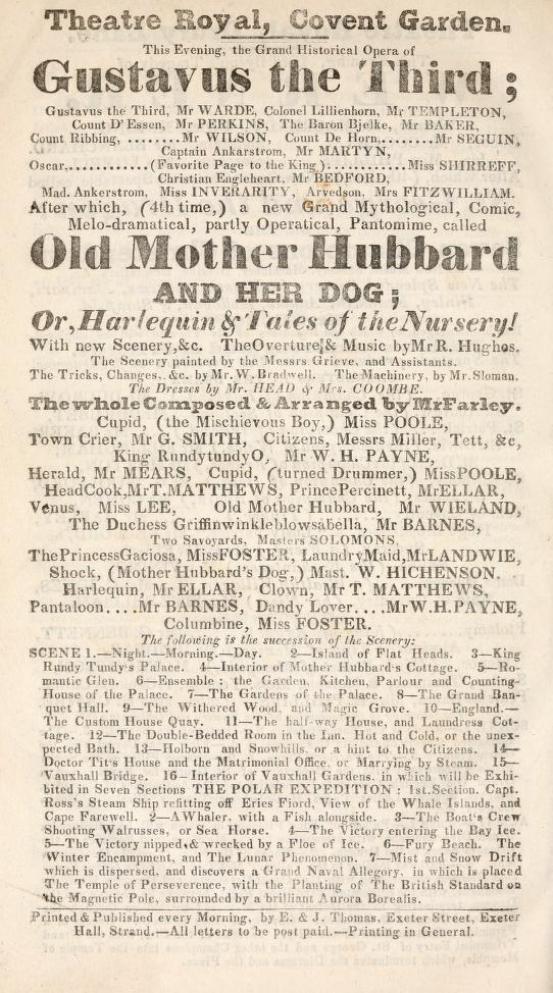Source: Alexandrina Victoria, journal entry for 22 June 1852
Production: Johann von Goethe, Faust, St James’s Theatre, London, 22 June 1852
Text: We dined early & went to the St. James’s Theatre, to see Goethe’s great & wonderful Tragedy of “Faust”, It was in 6 acts & though necessarily much curtailed, it lasted till 12. Having never read it before, I can hardly be a fit judge of it, but I mean to study it well now. For Philosophy, depth of feeling & beauty of reasoning, it has no equal, but I could not understand the 1rst part or follow it well. Then the story of poor Gretchen, the true story of all such poor girls, who are seduced, & whose pure innocent natures, are led step by step into sin, till they lose their reason & destroy both themselves & their child, — is most painful & the constant appearance of threat dreadful Mephistopheles, equally painful & oppressive. Still it is a magnificent work, & I have no doubt that by studying the Piece I shall get to appreciate it more. It was admirably acted. Devrient acted the part of Faust & recited the long monologue in the 1rst act beautifully; Herr Kühn, that of Mephistopheles, acting the part admirably, with a complete personification of the Devil, in both looks & gestures. He was quite horrid to look at; Fraülin Schäfer, as Gretchen, looking so pretty & acting the part so simply, naturally & innocently. At the end, when she said “I must die, I am still so young”, quite went to one’s heart, as also when Mephistopheles speaks to her & she answers so simply “I am a poor young creature”. She was charmingly dressed. Frau Flindt took the part of Martha. The end is too terrible when Gretchen is in prison & speaks of having poisoned her mother & killed her child. —
Comments: Alexandrina Victoria (1819-1901), later just Victoria, was Queen of the United Kingdom of Great Britain and Ireland from 1837 to her death, and additionally titled Empress of India from 1876. She kept up a journal from 1832 until almost the end of her life. The journal records many visits to the theatre, particularly in her younger days. Goethe‘s play Faust (part one) was one of a number of productions put on in a three-week season at the St James’s Theatre by a German company, led by Emil Devrient, who played Faust, with C. Kühn playing Mephistopheles. All the productions, which included Hamlet, were performed in German. Victoria was accompanied by her German husband, Prince Albert, who afterwards commissioned artist Edward Corbould to produce a painting of a scene from the play for the queen. It is held in the Royal collection.
Links: Queen Victoria’s Journals
Edward Henry Corbould, ‘Scene from Goethe’s Faust: the appearance of the Spirit of the Earth’ (1852), The Royal Collection

